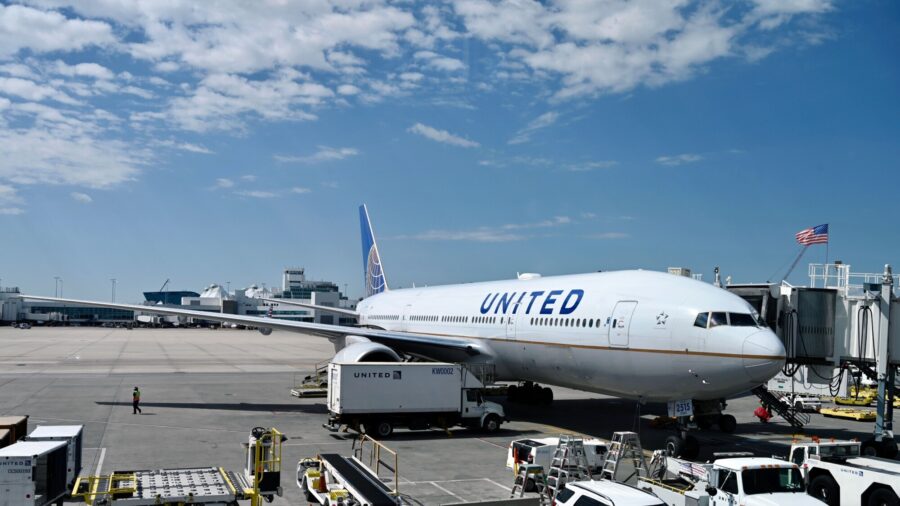A United Airlines flight suddenly took a steep dive shortly after take off from a Hawaiian airport, plunging 1,400 feet to within 775 feet of the Pacific Ocean.
The incident happened on Dec. 18, just 71 seconds after United Flight UA1722 took off from Kahului Airport at 2:49 p.m. local time from the island of Maui en route to San Fransisco, according to data from flight tracking service flightradar24.
The Boeing 777-200 reached roughly 2,200 feet in altitude before abruptly descending to 775 feet at a rate of nearly 8,600 feet per minute before quickly recovering and resuming its climb to a normal cruising altitude of 33,000 feet, aviation industry blog The Air Current reported.
According to the report, the incident was not previously reported on social media or by any news source until Feb. 12, when The Air Current first published its story.
The entire fall and rise of the aircraft lasted about 45 terrifying seconds.
The plane landed safely in San Fransisco 27 minutes early after the four-hour and 15-minute flight, according to the New York Post.
The Air Current also reported that “two people familiar with the incident said the climb produced forces of nearly 2.7 times the force of gravity on the aircraft and its occupants.”
“That means passengers certainly felt it,” Hawaii News Now reported.
According to The Air Current, a safety official reportedly said when asked if the incident should have been reported earlier, “such an extreme dive would normally prompt a call to the aircraft to ensure there was no threat of a hijacking or continuing issues maintaining control of the aircraft.”
However, in its analysis, The Air Current said it is unclear whether or not air traffic control (ATC) noticed the incident as recordings did not include any exchanges about one.
Once the flight had landed, the United crew reported the incident to the Federal Aviation Administration (FAA) as part of its voluntary safety reporting program.
“After landing at SFO, the pilots filed the appropriate safety report,” United spokesperson Josh Freed told The New York Post. “United then closely coordinated with the FAA and ALPA (Air Line Pilots Association) on an investigation that ultimately resulted in the pilots receiving additional training.”
“Safety remains our highest priority,” he added.
Freed also said that the two pilots have fully cooperated with the investigation and, between them, had about 25,000 hours of combined flying time, but did not elaborate on how much of that time was spent on the Boeing 777 and which of the pilots was at the controls at the time of the incident.
According to The Air Current, United did not notify the National Transportation Safety Board (NTSB) since no damage or injuries occurred to the aircraft or people—passengers, crew, or anyone on the ground, which is the usual criteria necessitating an incident report.
No one was injured during the Dec. 18 incident and, to date, it’s still unclear what caused it.
The plunge toward the ocean happened on the same day that 25 people were hurt—six seriously—on a Hawaiian Airlines flight from Phoenix to Honolulu that experienced severe turbulence in the Maui area, Hawaii News Now reported.
Maui, at the time that the United Flight departed, was experiencing “numerous showers and thunderstorms … capable of producing strong winds and hail,” according a National Weather Service Honolulu post on Twitter. Additionally, The Air Current reported that a flash flood warning had been issued for Maui County on the afternoon of Dec. 18.
That same Pacific storm, The Air Current reported, “spawned a massive ice storm that stretched across the western and central U.S.,” which, just days later, caused numerous flight delays and cancelations during the Christmas holiday season.

